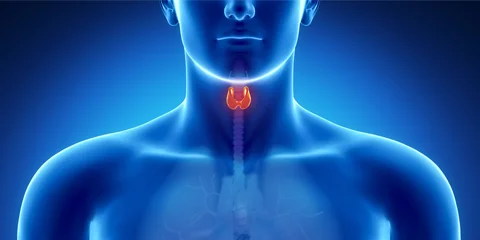This is how our application simplifies the booking and administration process. Interested >>
Endocrinology
What is endocrinology?
Endocrinology is that special arm of internal medicine that concerns itself with the diseases of the endocrine system. The endocrine (hormone producing) glands are the following: the pituitary, the thyroid, the parathyroid, the adrenal glands and the pancreas.
The most important job of the endocrine system is to ensure that the body's metabolic system works properly with the help of hormones. When circulating in the blood stream, the hormones produced by the endocrine glands help, or block, the organs in their function.

When should you see an endocrinologist?
Visits to an endocrinologist occur, generally, through a referral by an internist, family doctor or gynecologist. Such general clinical symptoms as fatigue, dry skin or excessive perspiration (hyperhidrosis), diarrhea or chronic constipation; palpitations or sleep problems are indications for contacting an endocrinologist. A woman seeing her gynecologist with bleeding problems or breast milk dripping not associated with nursing; a person with abnormal hair growth problems, oedema or livid abdominal striations; or diseases that run in families (often thyroid disease or the so-called multiplex endocrine adenomatosis) are all reasons for referring the patient to an endocrinologist for further examination and testing.
What does an endocrinological examination entail?
- Medical history will be taken: complaints and symptoms, family medical history
- Physical examination
- Laboratory tests (mainly hormones)
- Diagnostics (ultrasound of the abdomen / thyroid, CT scan of the abdomen when needed, MIRI scan of the pituitary gland)
- Ultrasound guided aspiration cytology (thyroid)
- Hormone testing under medication stimulation (in a hospital setting)
Principal endocrinological diseases (the most prevalent clinical picture):
Diseases of the thyroid:
- Hypothyreosis,
- Hyperthyreosis,
- Hashimoto thyreoiditis,
- Graves-Basedow disease,
- Goiter,
- Cancer.
Diseases of the pituitary gland:
- Hormone-producing tumors of the pituitary (i.e., prolactinoma, acromegalia, Cushing's disease) and non-hormone producing tumors
- Pituitary gland deficiency,
- Diabetes insipidus,
- Complications of fluid and electrolyte imbalance.
Diseases of the adrenal glands:
- Hormone hyperfunction (Cushing's syndrome, Conn syndrome, congenital adrenal hyperplasia),
- High blood pressure.
Diseases of the parathyroid:
- Hyperparathyreosis
- Osteoporosis
- Hypoparathyreosis
Diabetology, the arm of medicine dealing with diabetes and the pancreatic hormones, also belongs in this section though it has by now become a disease on its own.
Why choose the Buda Health Center for endocrinology?
The Patient-Doctor relationship is based on trust, the determining factor in a treatment's success or failure. We feel that our doctors have earned this trust through their professionalism, knowledge, experience and know-how. The level of care is further guaranteed since many of our leading physicians have gained renown and are respected in their field of specialty.

Feel free to contact our specialists!
At the Buda Health Center, you have the opportunity to attend the private practices of more than 300 renowned specialists, offering expertise in nearly 45 medical specialisms, at five locations. Personalized care is provided by a well-trained and empathetic staff of professionals, who have been working together for a long time. Based on our 24 years of experience and the feedback received from our 450,000 clients, we are constantly working to organize our healthcare services in the most efficient way possible for those who visit us, paying respect to their needs and time.





